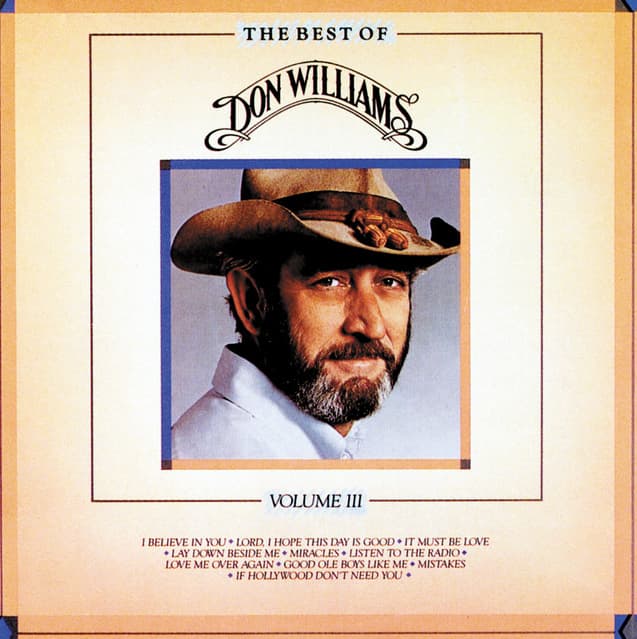
Don Williams and “Listen To The Radio”: The Gentle Giant’s Quiet Plea for Shared Feeling
There is a singular comfort in the voice of Don Williams, an easygoing baritone that earned him the apt moniker, “The Gentle Giant.” His music never shouted; it simply told—simple truths, profound sentiments, delivered with an unhurried, almost conversational cadence that made you feel like you were sitting on a porch swing with a wise, kind friend. The 1982 hit, “Listen To The Radio,” perfectly encapsulates this enduring appeal, presenting a quiet, intimate moment that resonates deeply with anyone who remembers the shared soundtrack of life during those years.
Released in April 1982 as the title track and lead single from his album, Listen To The Radio, this tune immediately found a home on the charts, becoming another smooth success in Williams‘ remarkable run. The single peaked at Number 3 on the Billboard Hot Country Singles chart in the US, while achieving the coveted Number 1 spot on the RPM Country Tracks chart in Canada. The album itself was also a success, charting at Number 6 on the US Top Country Albums chart. These are the kinds of numbers that speak to consistency, not flash—the sustained, steady popularity of a trusted voice. For older listeners, that consistency is a large part of Don Williams‘ charm; you knew exactly what you were getting: quality, heart, and a lack of pretense.
The genius of “Listen To The Radio,” penned by songwriter Fred Knipe, lies in its profoundly shy and understated declaration of desire. The song’s protagonist is not a bold, smooth-talking cowboy; he is an ordinary man paralyzed by the fear of sounding “so plain” when trying to articulate his deepest feelings to the woman he is with. He can’t find the right words himself, so he resorts to a beautiful, subtle form of emotional communication: he encourages her to “listen to the radio.”
This is the central metaphor and the sheer brilliance of the track. In an age before endless playlists and personalized streams, the radio was the shared cultural heartbeat—a reliable vehicle for collective emotion. The narrator is essentially outsourcing his passion to the poets and singers of the airwaves, hoping that a song—perhaps a familiar ballad about staying together or the urgency of the moment—will speak the truth his own voice cannot muster. He sings, quite tenderly:
“The words I’d say don’t seem to sound as real / The songs they play, that’s how I really feel.”
It’s a beautiful confession of vulnerability. He’s not avoiding responsibility; he is admitting his limitations, confessing that the power of music is greater than his own hesitant language. He asks her to dance close, “to something on the radio,” letting the music itself bridge the gap between his shy intentions and her understanding. This kind of relatable, quiet humility is what made Don Williams the “Gentle Giant.” He sang about the real feelings of real people—the awkwardness, the shyness, and the profound hope for connection—without a trace of machismo or theatricality.
For a mature audience, the song is a powerful reminder of how we used simple, shared resources—like a radio playing in the dark—to communicate complex emotions. It’s a nostalgic nod to a time when courtship moved a little slower, and when a whispered suggestion to “listen to the radio” could be the most passionate, hopeful invitation of the evening. It’s a classic because it perfectly marries Williams’ calming delivery with a universal human truth: sometimes, the most important things in life are best expressed by a song.